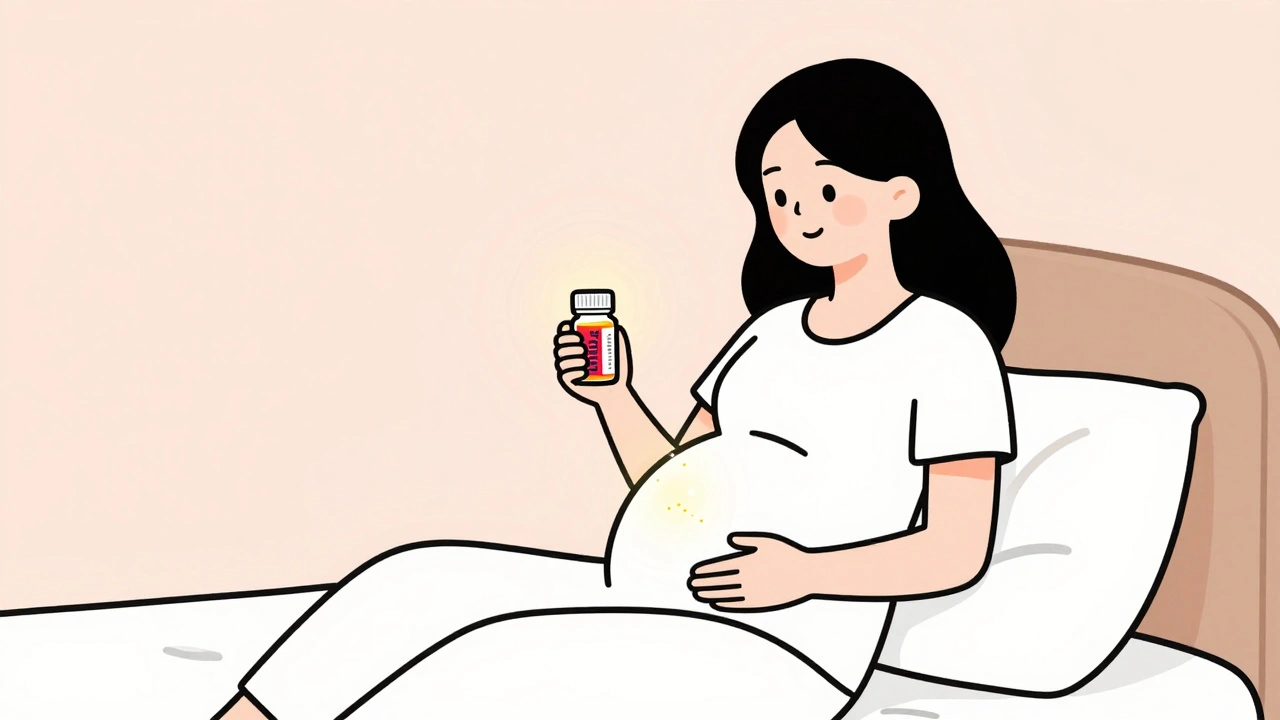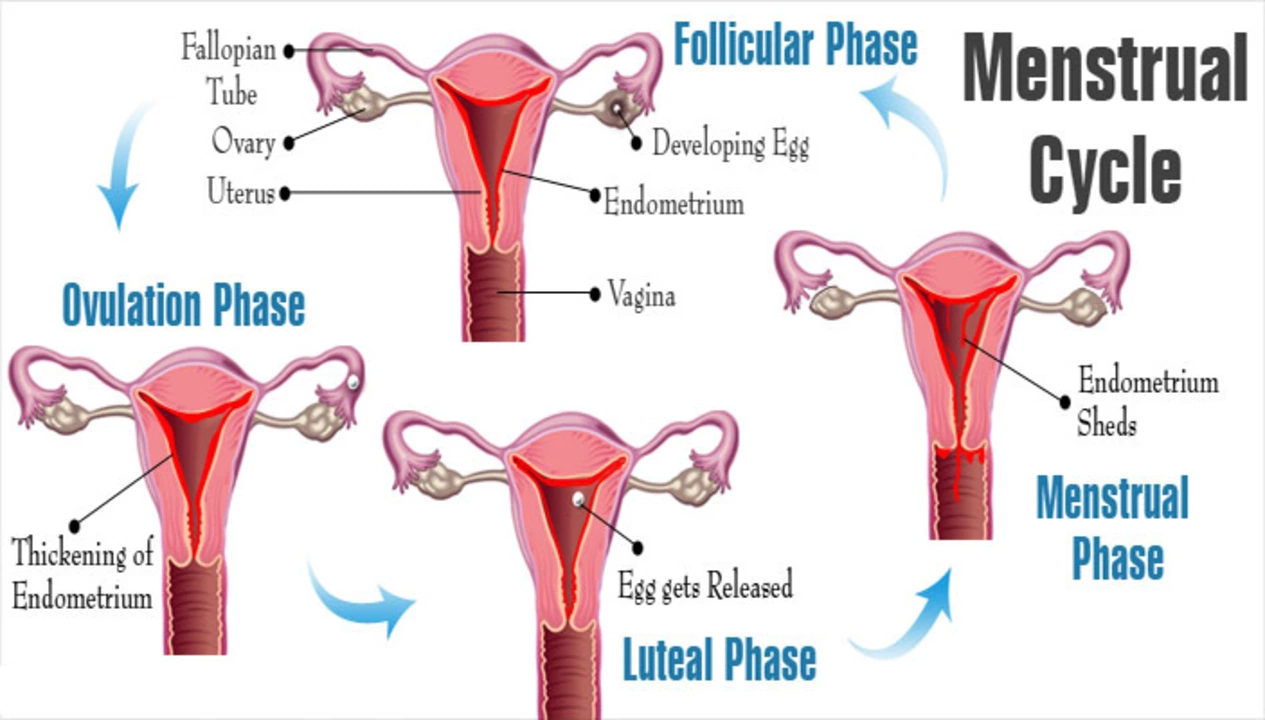Women Health: Practical Advice on Periods, Thyroid, Pregnancy and Meds
Thyroid medication can change your period - and many women notice it before their doctor mentions it. On this page you'll find clear, practical info about common women's health issues: menstrual changes, thyroid effects, pregnancy safety, contraception and everyday meds.
Periods and thyroid drugs often interact. Levothyroxine, a common thyroid replacement, can help normalize irregular cycles if low thyroid hormones caused the problem. But when your dose changes, your cycle might shift too - heavier flow, lighter flow, or timing changes. Track your dates and symptoms for a few months after any dose change and share that with your provider.
What to watch for
Notice sudden changes: very heavy bleeding, severe cramps, spotting between periods, or skipped cycles. These can be a sign of dose issues, other hormone problems, or a separate gynecologic condition. If you start levothyroxine and see big changes, ask for a thyroid panel (TSH, free T4) and a pelvic check if needed.
Interaction with other meds matters. Birth control pills can affect thyroid tests and vice versa. Some supplements, like iron or calcium, reduce levothyroxine absorption - take thyroid meds on an empty stomach and wait 30-60 minutes before eating or taking other pills.
Pregnancy, fertility and menopause
If you're trying to get pregnant, tell your doctor if you're on thyroid meds. Proper thyroid levels support ovulation and early pregnancy. Pregnant women often need a higher levothyroxine dose and closer monitoring. During menopause, symptoms overlap with thyroid problems - fatigue, mood shifts, and irregular periods - so testing helps separate the causes.
Simple daily habits help. Keep a consistent time for levothyroxine, log your cycle and medications in one app, and bring a complete list to appointments. If you switch brands or pharmacies, note any changes in how you feel.
When to call a pro: sudden heavy bleeding, severe pain, fainting, or pregnancy while on any new medication. Your pharmacist can explain drug interactions and the best way to take pills, and your clinician can adjust doses or order tests.
We aim to make this topic easy to handle. Browse individual articles for deeper answers on specific drugs, conditions, and life stages. Ask questions, keep records, and advocate for tests when symptoms change - small steps that make a big difference in women's health.
Expect labs about 6-8 weeks after any levothyroxine dose change. TSH is the main test your doctor will watch. If TSH stays high, the dose may rise; if TSH goes too low you might feel jittery or lose weight. Report new symptoms like heart palpitations, insomnia, or sudden anxiety - they could mean your dose is too high. Avoid taking iron, calcium, or antacids within four hours of your thyroid pill; those lower absorption and can make doses ineffective. Finally, if you ever feel unsure, ask your pharmacist to review all your pills - they spot interactions fast and can save you trouble.
Want detailed guides? Check the levothyroxine article and other pages here for step-by-step tips and FAQs today.
- Colin Hurd
- Dec, 4 2025
- 14 Comments
Heartburn Medications in Pregnancy: Safe Options Like Antacids, H2 Blockers, and PPIs
Learn which heartburn medications are safe during pregnancy, including antacids like Tums, H2 blockers like Pepcid, and PPIs like omeprazole. Get clear guidance on what to use, what to avoid, and how to manage symptoms naturally.
- Colin Hurd
- Nov, 18 2025
- 15 Comments
Can vomiting during pregnancy affect your mood and mental health?
Severe vomiting during pregnancy can significantly impact mental health, leading to anxiety and depression. Learn how nausea connects to mood, when to seek help, and what actually works to support both body and mind.
- Colin Hurd
- Oct, 16 2025
- 9 Comments
Desogestrel for PCOS: Benefits of the Progestin‑Only Pill
Explore how desogestrel, a progestin‑only pill, can help manage PCOS symptoms, its benefits, side effects, and practical usage tips for women.
- Colin Hurd
- May, 13 2023
- 16 Comments
The Impact of Levothyroxine on Menstrual Cycle: What Women Should Know
As a woman, I recently came across the connection between Levothyroxine and its impact on our menstrual cycle. Levothyroxine is a medication commonly prescribed for thyroid issues, which can significantly affect our periods. In some cases, it can lead to heavier or more irregular cycles, while in others, it might help regulate them by addressing the underlying thyroid issue. It's important for us to understand how our bodies react to this medication and to communicate with our healthcare providers about any changes we experience. By doing so, we can better manage our thyroid health and its effects on our menstrual cycle.




